Media Buying is the business of buying ad placements at the lowest cost in different media channels from publications to advertise a product or a brand to make it visible to the maximum number of targeted customers. Media Planning is a part of media buying, which involves comprehensive research, planning, monitoring a mix of media platforms to help the advertisers’ reach their target audience, especially for the initial purchase. The ever-growing field of Digital media buying requires proper training and extensive knowledge. Media buying webinars and Media Certification courses listed below will help to pursue your dreams with a wide range of career options.
10 Best Courses on Media Buying in 2021
Here is a list of 10 best courses on media buying to help you start a career or even upgrade your skillset.
1. Fundamentals of Digital Media
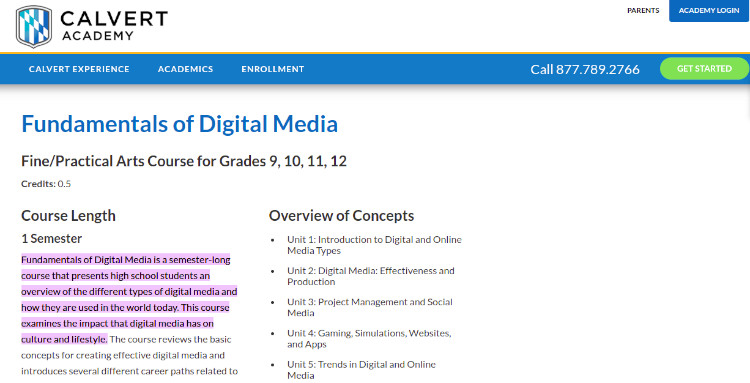

This is an elementary course on Digital Media to make the foundations strong before pursuing a career in digital marketing. It is the learning about the complexities of the ad ecosystem and its impact on purchase. Understanding how ad technology and data support media transactions, how advertisers use research and metrics to measure response across devices and platforms. All major considerations for digital media buying and selling from pricing and optimization to addressing campaign objectives and reviewing ad compliance and regulatory guidelines are taught in details This includes highlights of critical aspects regarding ad fraud and ad blocking. Two most important aspects of data-driven media: audience extension and ad verification are also incorporated in the syllabus. The course provides the latest in trends and forecasts, as well as an overview of the industry’s future and challenges.
2. Principles of Programmatic Media
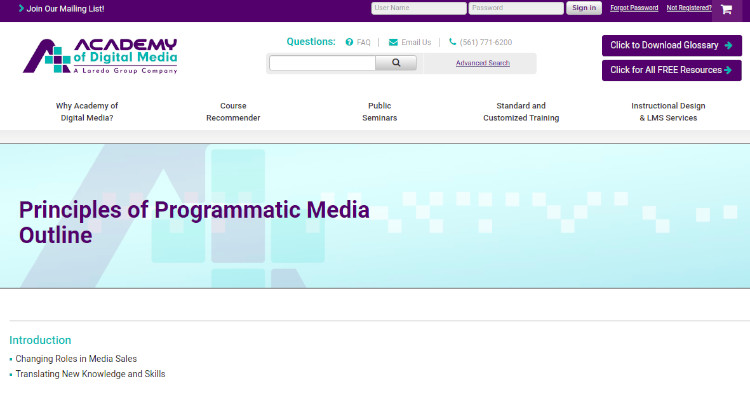

This course gives a comprehensive review of all the components of programmatic media, including the detailed steps in the process of delivering media, tools and technologies defining programmatic media. It will give insights on how automated buying and selling drives efficiency in advertising. Understanding the process of transacting media via programmatic channels, the relationships between each of the technology components, inventory considerations, pricing and bidding strategies, recognize transaction considerations for both open and private marketplaces are included in the course. The syllabus also comprises of studying the relationships between the elements and illustrate the flow of real-time media through the tech stack. While buying or selling programmatic media, it is crucial to understand inventory types and quality and the structure of the auction process and bidding. This course will be able to demonstrate the use of appropriate terminology, relate to how programmatic changes the buying/selling experience, and utilize their knowledge in both strategic discussions and tactical implementation of real-time audience-driven media campaigns.
3. Mastering Measurement
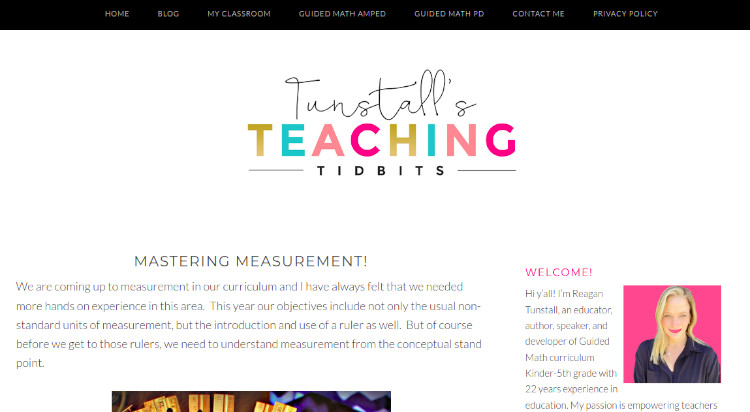

Measurement is learning several methods to measure digital ad campaigns and the variables impacting campaign performance. It varies with the campaign’s objectives, the creative assets, the media platforms and placements. To be a skilled Media professional, one must know which metrics are to use when and how, and also the implications each has on performance measurement and campaign goals. The course is clearly demonstrated by a webinar which includes illustrations and detailed definitions of over 20 different campaign metrics and measurement concepts. Descriptions of how 1st and 3rd party data is collected and used to measure campaigns; Clarification of what impacts performance metrics, including an in-depth perspective on challenges using click-through rates as a measure of advertising performance; and the identification of the industry standards and best practices regarding measurement, targeting and privacy are showcased too. After the course, sellers will be able to be proactive in their discussions with buyers about expected campaign performance and buyers will be able to correctly identify the right metrics and establish appropriate benchmarks for their campaigns.
4. Media planning and buying
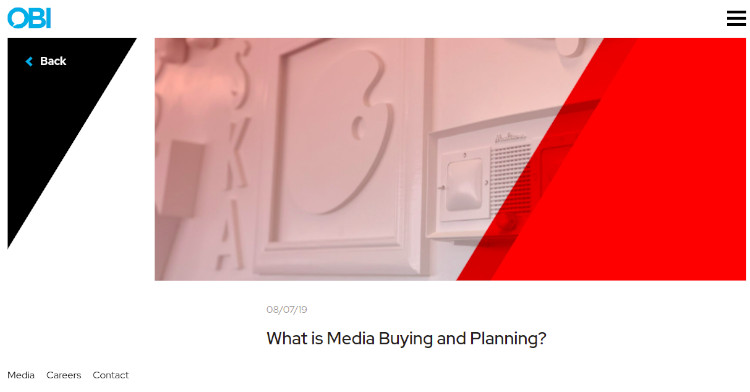

Designed for both freshers and professionals, the course deals with the digital media planning and implementation. It includes programmatic buying, Tips for Buying Online Media, The Pre-Buy, Demographic Research, Competitive Intelligence, Where to Put Your Media Buy, Network/Agency Buy Methodology, Media Buying via Demand Side Platforms (DSP), Direct Buy Methodology, Negotiating the Media Buy. There will be insights on online text, display, expanding, floating, in-stream, roadblock, overlay, in-game and many more inventories. The online media chapters contain online media monetization, targeting, analytics, ad formats & direct Vs Ad network. This course will enable to better understand the outcomes of media buying.
5. Online Reputation Management (ORM)
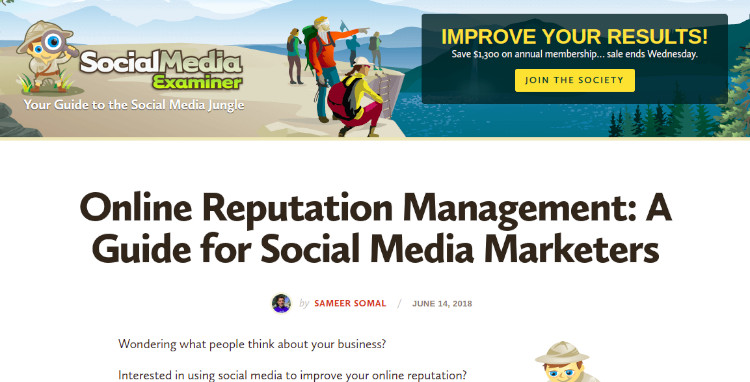

In this digital age, online conversations circulate at lightning speed. Thus comes this course, designed for managing the online reputation of a brand. This mitigates negative online conversations and bringing positive feedback in order to restore a brand’s reputation and credibility. A negative product review can have a grave impact on product sales or business. This involves learning how to respond to negative conversations, receiving customer feedback, counteracting misleading trends and restoring brand faith. Also includes the usage of tools such as Google Alerts, Social Mention, Simplify360, etc so as to track whenever a brand’s name is mentioned in social media. The most crucial part of ORM course is the Crisis Management training. There will be practical exercises that will help students cope with a massive online crisis with an industrial case study. It will train students to estimate the extent of the problem, respond appropriately to mitigate risks and rectify the damage done.
6. WordPress Training
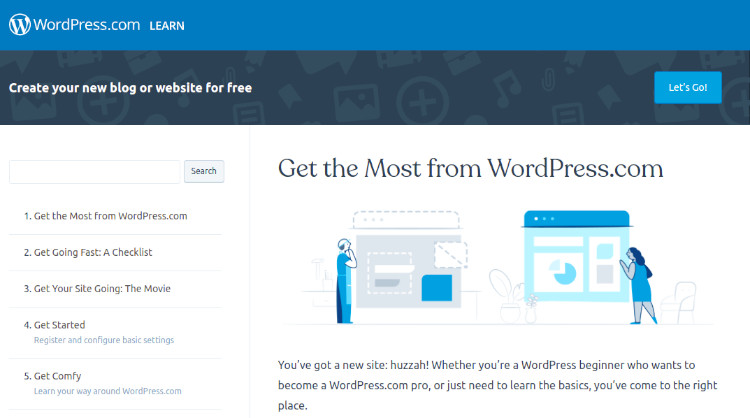

This course is created with the objective of teaching web development. The website designing course teaches students to create a website without using codes. The course comprises of intensive training sessions under web development experts. It starts from the basics of website building which includes understanding the WWW, setting up a domain, DNS server, and web hosting. Installing and using the WordPress software which is a Content Management System is taught extensively. This involves selection of a theme for the website, page creation, publishing posts, visual elements and adding WordPress plugins. This Certification course requires each student to create a WordPress website as a part of the assignment, with relevant pages, content, and plugins.
7. Ecommerce Management
It is an intensive course which starts with the knowledge of available online marketplaces and e-commerce business models along with their advantages and case studies of the key players in the market. The training covers the aspect of e-commerce management that includes product acquisition, setting up online payment, inventory and supply chain management, uploading products online and more. Participants of the course are taught how to market and promote a product online, using the right keywords and also dealing with negative product reviews. Students are given hands-on training how to create an e-commerce portal of using software like Zepo and Shopify.
8. Social Media Marketing
Social media has immense power to market products, build brands, generate brand awareness, create visibility, instill brand recall, and also drive website traffic. This is why Social Media Marketing a lucrative field of knowledge which has endless job prospects. This training is curated with the objective of giving the students a thorough understanding of social media marketing. It comprises of comprehensive training sessions that delve into social media marketing and advertising on various platforms such as Facebook, Twitter, Instagram, YouTube, LinkedIn, Pinterest, Google+ and Snapchat. The course teaches identifying the right potential customers, building marketing strategies, campaigns, and creating online contests. Case studies of successful brand campaigns and contests are demonstrated for better understanding. Terminologies such as Pay Per Click (PPC), Cost Per Impression (CPM), are well learned that are absolutely essential to online advertising.
9. Search Engine Optimization


The SEO course is designed with the objective of learning to place a webpage in a better position on search engines like Google and Yahoo. During the SEO training, different aspects of Search Engine Optimization like its algorithms, page ranking factors. on-page, off-page optimization, keyword research are taught in an exhaustive manner. Several SEO hacks and webmaster tools which improve the visibility of a business page, blog or website on search engines organically are also taught. Skills to develop website user experience and optimize web content being pivotal to SEO course are also dealt with.
10. Web Analytics
The focus of the course is on learning and making optimum use of Google Analytics. A definitive understanding of bounce rate, session time, page views, etc analytics terminologies are taught. How a website is tracked and what information can be extracted from it can be learned. Students taking this course can identify the source of the website traffic, audience demographics, behavior of the visitors and website conversions. The web analytics training then proceeds to analyze data on social platforms such as Facebook, Instagram, Twitter and YouTube. This, in turn, will enable to extract, measure relevant data and understand website traffic which is beneficial to any business. Analytics is that powerful tool which is the key to optimizing any advertising strategy and website content into delivering better monetization.
Round Up
Digital Media Buying involves a lot of careful planning, strategies and execution. There is a constant need for a source of information and advice. This requires a lot of creative skills, ability to learn new tools. Thus, as discussed above the media certification courses are essential for a dynamic career in Media Planning.
Our 'Handpicked' Tools for Internet Mareters
- Native Advertising Software Tool: Brax, Anstrex
- Facebook Advertising Software Tool: Audiencer, Revealbot, Connectio,
- Social Media Advertising Software Tool: SproutSocial, SocialBee,
- Internet Marketing Software Tools: Semrush, SproutSocial,



I and my team research various media buying platforms and can help you choose the right network; so you could rake in more greenbacks with an increased ROAS. I am just a mail away, so reach out to me if you need assistance with scalable media buying. mail: [email protected]


